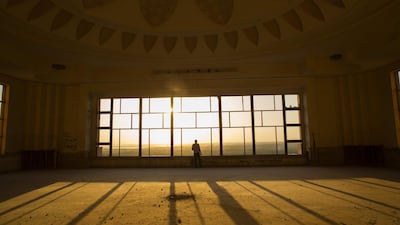Some 4,000 years ago on the banks of the Euphrates river, an estimated 200,000 people lived and traded in Babylon, the world’s largest city. Back then, it was a seat of learning and science, housing the Hanging Gardens, one of the Seven Wonders of the Ancient World. A former cradle of civilisation, Babylon is integral to understanding the history of humanity.
But the site has been trampled upon by decades of conflict and misrule. Former Iraqi leader Saddam Hussein razed a large portion to build a gaudy palace for himself, before it became a base for US troops leading the 2003 invasion that toppled him. According to John Curtis of the British Museum, US troops protected themselves with sandbags stuffed with archaeological fragments.
Babylon might belong to Iraq but its significance is global. Fortunately, after 36 years of lobbying by the Iraqi government, Unesco this week designated Babylon a world heritage site.
The title does not simply recognise the historical significance of the ancient city – or the Babylonian and Mesopotamian civilisations that constructed it. It also brings the promise of conservation, which could scarcely be more necessary. Although Unesco stopped short of calling it an endangered site, the body said Babylon was in an “extremely vulnerable condition”, with many of its structures at risk of collapse. So far, just 18 per cent of the site has been excavated. Luckily, that is about to change.
For Iraq, which is enjoying a period of relative calm following the US-led invasion and the five-year battle against ISIS, this is an important moment. The extremist group delighted in desecrating some of the country’s most important archaeological sites and recovery from its devastating rampage has been slow and painful.
Protecting Babylon will bring thousands of visitors to a nation whose tourist industry has been obliterated by conflict and help change perceptions of Iraq across the world.
The country is desperately trying to rebuild and grow and decisions such as this can make Iraq synonymous not with war, but the very fabric of human history.

